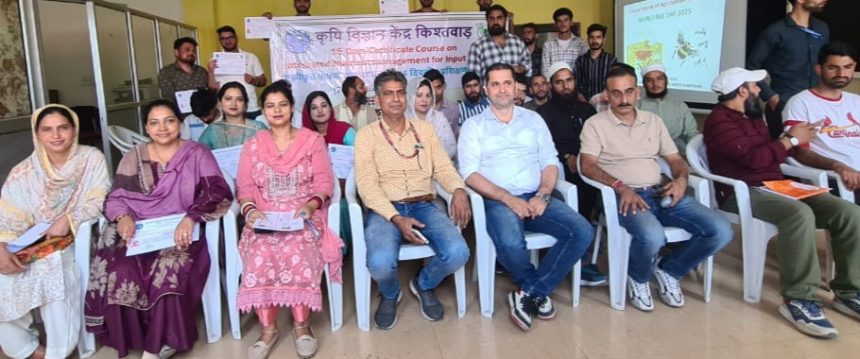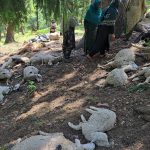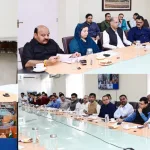Srinagar, May 20: Krishi Vigyan Kendra (KVK) Srinagar Tuesday kick-started a three-day skill development training programme on silkworm rearing technology (seed production to reeling) at the Basic Silkworm Seed Production Unit, New Theed Harwan, to equip the silkworm rearing growers of the area and extension functionaries of district Srinagar with hands-on training in seed production, mode of worm transfer and transportation, their scientific foraging, and subsequent cocoon production.
The skill training is being organised by KVK Srinagar in collaboration with the Sericulture development department Srinagar and with technical support from CoTS Mirgund, SKUAST-Kashmir. The programme is being conducted well before the onset of the rearing season to benefit practising rearers, entrepreneurs by upgrading their skills with various scientific techniques to make rearing a more remunerative venture. Day one’s technical session was conducted by Dr Lateef L. Khan, expert resource person from CoTS Mirgund, who deliberated on a range of scientific methodologies, including the management of frequently occurring protozoan, bacterial, viral and fungal diseases during the rearing season that infest the larval stage in particular, as well as techniques for establishing a successful and commercially viable silkworm enterprise. On the occasion, S. A. Simnani, Head of KVK, underlined the importance of silkworm rearing as a sustainable agri-business venture requiring minimal initial investment over a short period of time. He also motivated the participants to enrol under the HADP programme of J&K to reap its benefits. The programme witnessed the participation of more than 50 commercial silkworm growers and was attended by KVK scientists, officers and extension functionaries from development departments, besides the village head and panchs. Javied A. Mir (Sericulture Development Assistant) gave an insight into the issues in production and horizontal expansion of the sector and the remedial measures being taken by the department to address the issues through a holistic approach.
KVK Kishtwar concludes certificate course on INM
KVK Kishtwar Tuesday concluded 15 days certificate course on Integrated Nutrient Management (INM) for agriculture input dealers and Krishi Udhyamis at Kishtwar. The course was conducted under the leadership of Dr BN Tripathi Vice Chancellor, SKUAST Jammu and was coordinated by Dr Narinder Paul, Incharge KVK Kishtwar under the guidance of Dr Amrish Vaid, Director Extension SKUAST Jammu.
About 35 youth were trained during the programme. Fifteen days certificate on INM is pre-requisite for availing licence for the business of fertilizers and plant nutrients. Keeping in view the key role inputs dealers in providing technological information to the farmers, this certificate course is mandatory for the fertilizers dealer aspirants. During the course, series of lectures, exposure visits, method demonstrations and practical’s for enhancing knowledge and upgrading skills on soils and fertilizers of aspiring fertilizer inputs dealers and Krishi Udhyamis were conducted by the experts from KVKs, SKUAST Jammu and Agriculture Production and Farmers Welfare department Kishtwar. Kuldeep Kumar Koul, SMS SDL, Marwah was the resource person on the last day of the programme. He spoke on balanced fertilizers use for proper nutrient management of agricultural crops. He also highlighted the major deficiency symptoms of the nutrients in plants. Dr Narinder Paul Incharge KVK Kishtwar while speaking during the concluding programmes of the course informed that nutrients are very essential for growth and development of plants and obtaining economic beneficial yield. In the absence of proper nutrition, crop gets seriously affected which in turn affect the yield of the crop. Kushal Chandel Chief Agricultural Officer (CAO) Kishtwar while addressing the participants briefed about modalities for getting fertilizer licence. He advocated for guiding the client farmers on proper and judicious use of manures and fertilizers and for providing balanced nutrition to the crops. At the end of the programme, certificates were presented by the CAO Kishtwar to the participants.








